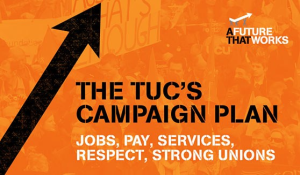Don’t let energy companies off the hook, says TUC
Speaking at a conference in London on Friday, TUC General Secretary Frances O’Grady said that ministers’ focus on green levies shows that the government is siding with energy companies over consumers, and that the major reforms needed to bring energy bills back under control are likely to be dodged.
Speaking at an event hosted by Green MEP Jean Lambert, Frances O’Grady said: “The recent hikes in energy bills – coming as people suffer the tightest squeeze in living standards in a generation – have put rip-off energy companies firmly in the spotlight.
“Earlier this week, figures from Ofgem showed that the big six energy firms’ excess profits are the main source of soaring bills – with the profits they make per household up 77 per cent between 2011-2012 alone.
“It’s depressing that the government has fallen for the energy firms’ spin and shied away from vital market reforms to tackle excessive profits. The Chancellor appears to be on the verge of letting the big six off the hook by watering down their obligations to make the homes of those with the least money more energy efficient.
“If, as is being suggested, the Chancellor opts to move some green levies from household energy bills to general taxation, this may help achieve small reductions in the cost of peoples’ sky-high bills. General taxation is a far better way to fund green investment as it places less of a burden on poorer households, and means the well-off contribute more.
“But if the Chancellor’s proposals also involve watering down important programmes, they will be a false economy. Reducing investment in home insulation will mean higher bills in the long run for those who would have benefitted from support to make their homes more efficient, as well as a loss of skilled jobs and apprenticeships in the construction and energy conservation industries.
“Any moves to reduce the requirements that energy companies face also need to be strongly opposed – with such healthy profit margins these businesses can easily afford to meet the cost of helping the poorest insulate their homes at the same time as bringing bills down.”

